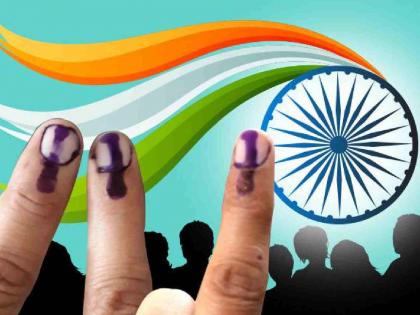Supreme Court Clears Way for Local Body Elections in Maharashtra, Retains Pre-2022 OBC Quota
By Lokmat English Desk | Updated: May 7, 2025 16:02 IST2025-05-07T16:00:43+5:302025-05-07T16:02:03+5:30
In a major development, the Supreme Court has directed the Maharashtra government to issue election notifications for local self-government ...

Supreme Court Clears Way for Local Body Elections in Maharashtra, Retains Pre-2022 OBC Quota
In a major development, the Supreme Court has directed the Maharashtra government to issue election notifications for local self-government bodies within four weeks, while maintaining the Other Backward Classes (OBC) reservation structure as it was before 2022. This paves the way for long-pending elections in various municipal corporations, district councils, municipal councils, and nagar panchayats that have been under administrative rule for nearly three years. The delay in elections was primarily due to legal challenges concerning reduced OBC reservations. With the apex court’s recent order, the election process for these bodies must now be completed within four months, offering a much-needed breakthrough. The decision has been widely welcomed by political parties across the spectrum.
Since December 2021, administrators have been appointed to oversee the expired terms of several local governing bodies in the Amravati district. These include the municipal corporation, district council, 14 panchayat samitis, 10 municipal councils, and two nagar panchayats. Only Tivsa and Bhatkuli Nagar Panchayats currently have elected representatives. The state government had earlier submitted a commission report to the court proposing a solution for OBC reservations, which eventually led to the Supreme Court’s favorable ruling on May 6.
Confusion Over Reservation and Ward Structure
Despite the clarity provided by the court, some confusion persists over ward boundaries and reservation categories. For instance, in 2022, the Zilla Parishad's 66 seats were allocated as follows: 12 for Scheduled Castes, 13 for Scheduled Tribes, 7 for OBCs, and 34 for the general category, with 33 seats reserved for women. Now, with the reinstatement of the pre-2022 OBC reservation model, discrepancies in these figures are expected to be addressed by the state administration.
Previous member counts also vary across bodies. In the 2017 elections, the Amravati Municipal Corporation had 87 members across 22 wards, the Zilla Parishad had 59 members, and 14 panchayat samitis collectively had 118 members. Other councils, such as Achalpur (39), Anjangaon (28), Warud (24), and Daryapur (21) had differing seat counts, while the rest had 17 each.
Political Reactions and Election Preparation
The Supreme Court's decision has injected new enthusiasm among political workers and aspirants. With local elections now imminent, all major parties have shifted focus to these contests.
BJP City President Pravin Pote Patil expressed confidence: "We welcome the court’s verdict. It will benefit the BJP, and we will contest with full strength. As in 2017, the BJP will emerge as the largest party again."
Congress City Committee President Bablu Shekhawat said: "Congress is fully prepared for the municipal elections and ready to lead the city once again."
Shiv Sena (Shinde faction) District Chief Arun Padole stated: "We welcome the decision and will follow party leader Eknath Shinde's directive in the upcoming elections."
NCP (Ajit Pawar faction) City President Prashant Daware added: "Our party is fully ready, and our workers are highly enthusiastic."
As political temperatures rise, discussions have intensified around whether the Mahayuti (BJP-led alliance) and the Maha Vikas Aghadi (opposition alliance) will remain intact or choose to contest independently in the upcoming elections.
With the Supreme Court's intervention, the democratic process at the grassroots level is set to be revived, marking a significant moment for local governance in Maharashtra.
Open in app